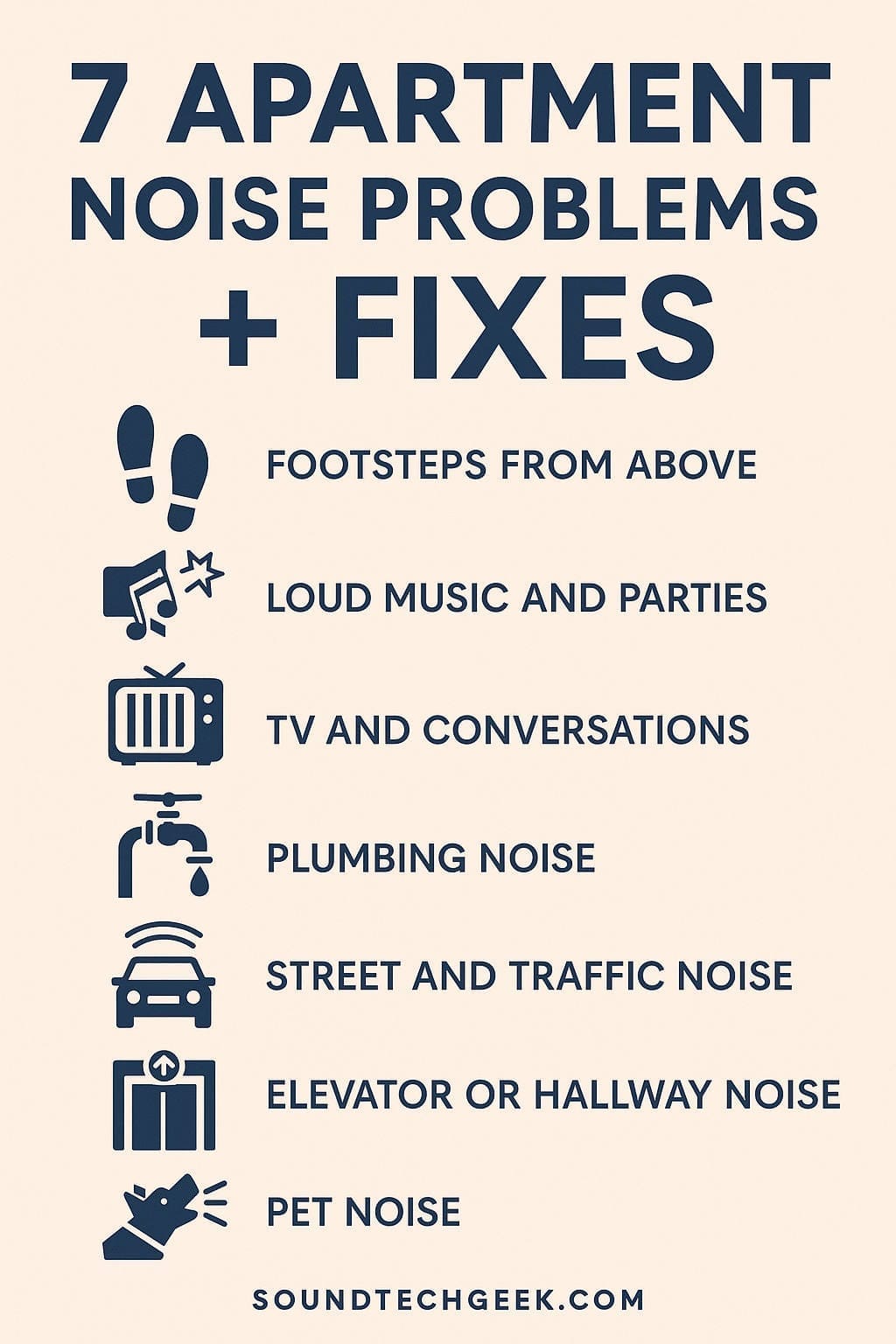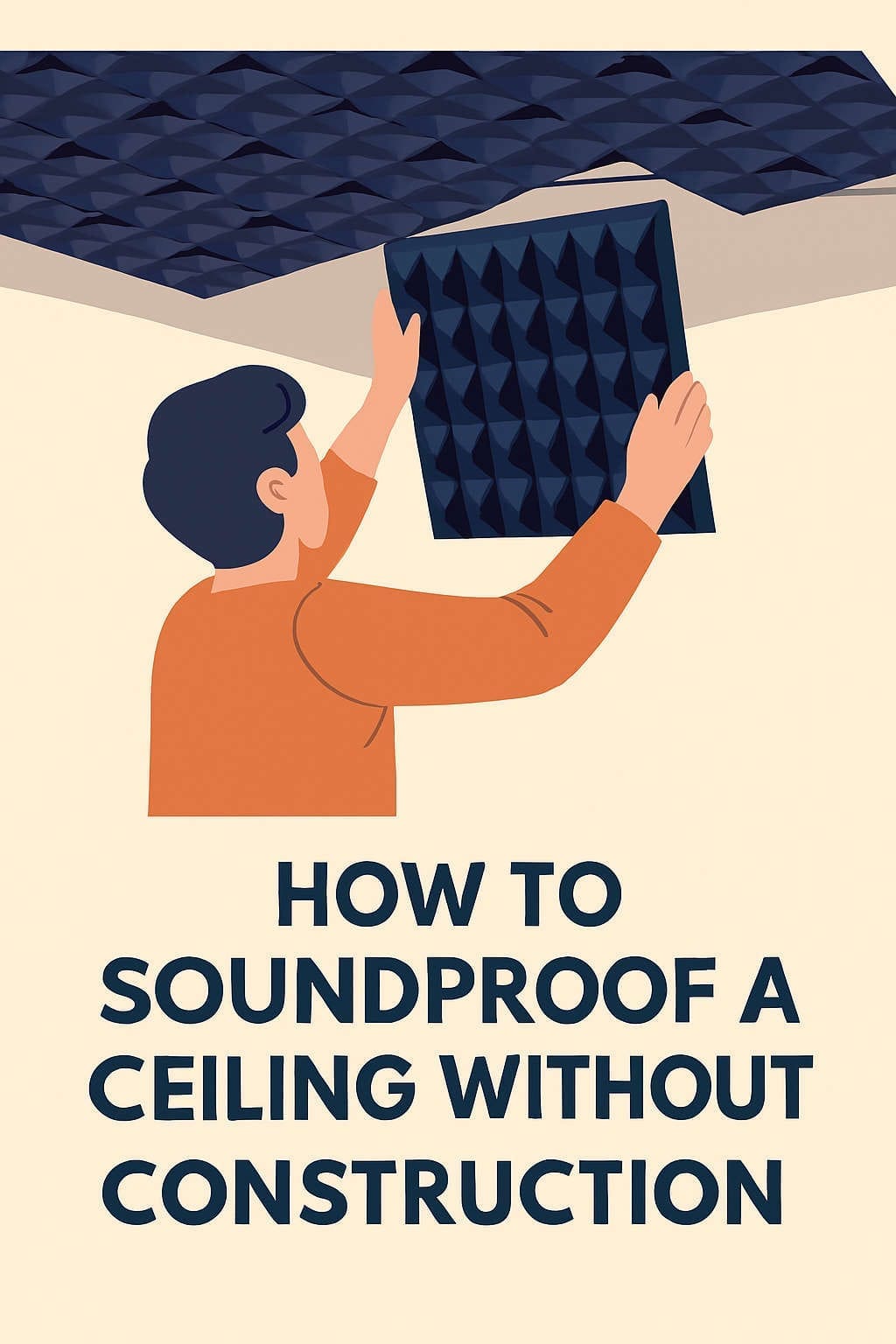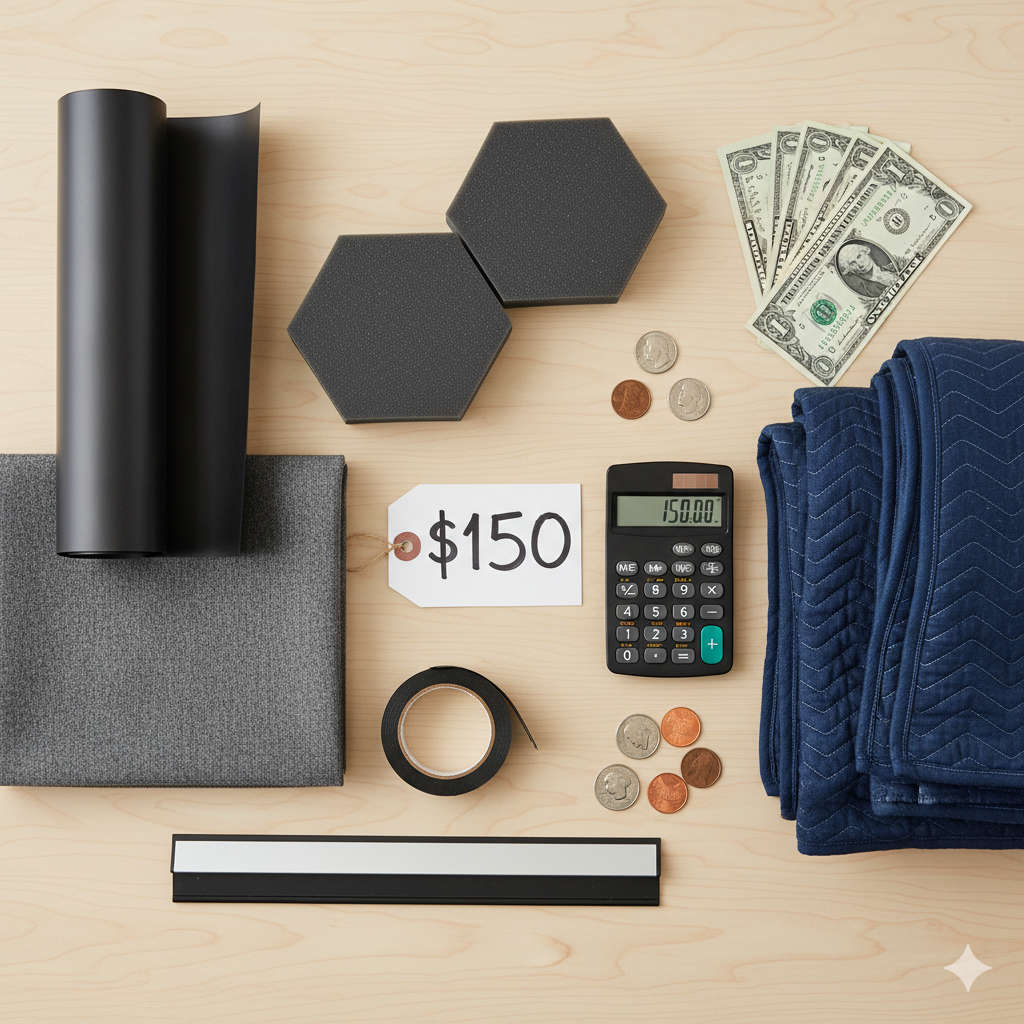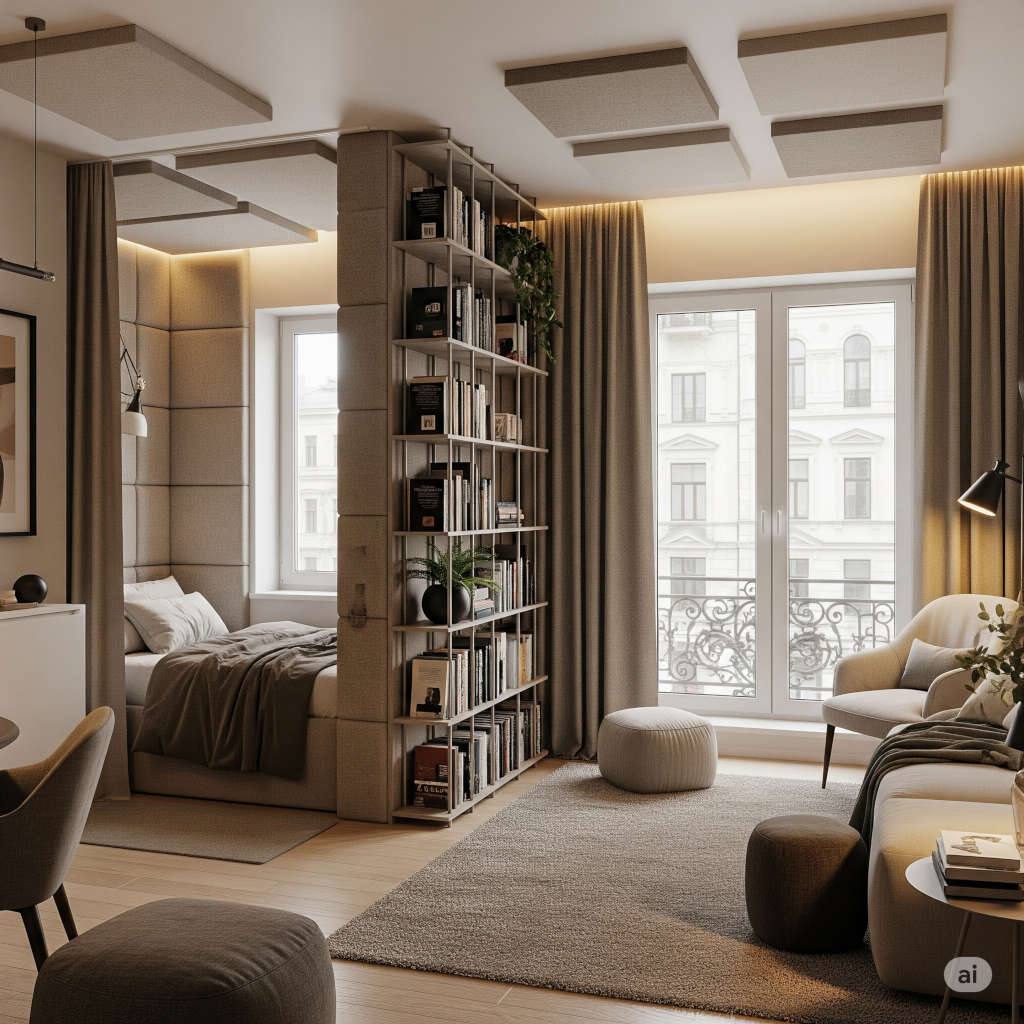Living in an apartment comes with many perks: lower maintenance, prime city locations, and shared amenities like gyms and pools. But one major downside? Noise. If you’ve ever been jolted awake by loud music, stomping from upstairs, or barking dogs, you know how disruptive unwanted noise can be.
Apartment noise is a common frustration. Unlike single-family homes, apartment units are surrounded by shared walls, floors, ceilings, and often noisy public spaces like hallways or streets. Whether you’re a renter or owner, dealing with constant noise can affect your peace of mind, your sleep, and even your health.
In this guide, we’ll explore the most common types of noise problems in apartments, what causes them, and—most importantly—how to fix them. With practical tips and actionable solutions, you’ll be better equipped to create a quieter, more comfortable living space.
Why Apartment Noise Is More Than Just Annoying
Excessive noise isn’t just a minor inconvenience. Over time, it can seriously impact your well-being. Studies have linked ongoing noise exposure to increased stress levels, sleep disturbances, cardiovascular issues, and even reduced cognitive performance.
Add in the emotional toll—irritability, anxiety, and the feeling of helplessness—and it becomes clear that addressing noise issues isn’t optional. It’s essential.
Top 7 Apartment Noise Problems (And Their Root Causes)
Let’s dive into the most common noise complaints in apartments and why they happen in the first place:
1. Footsteps and Impact Noise from Above
This type of noise, also known as “impact noise,” results from direct contact with a surface. Think: high heels on hardwood floors, children running, or furniture being moved. If your upstairs neighbor has bare floors, you’re more likely to hear every move they make.
Causes:
- Lack of carpeting or rugs
- Poorly insulated ceilings
- Older buildings with minimal soundproofing
2. Loud Music and Parties
We’ve all dealt with neighbors who love their sound systems a little too much. While occasional music isn’t a problem, recurring late-night parties or blasting music can be unbearable.
Causes:
- Thin walls
- No noise-dampening treatments
- Disregard for community quiet hours
3. TV and Conversations Through Walls
If you can hear your neighbor’s Netflix binge or phone call word-for-word, you’re dealing with airborne sound traveling through shared walls.
Causes:
- Hollow interior walls
- Poor insulation
- Direct wall-to-wall contact with furniture
4. Street and Traffic Noise
Living near a busy street, construction site, or nightlife hub can bring outside noise right into your home.
Causes:
- Single-pane or poorly sealed windows
- Lack of sound barriers
- Upper-floor exposure to traffic sounds or wind
5. Plumbing and Mechanical Sounds
Noises from pipes, HVAC units, and appliances can be loud, especially at night.
Causes:
- Loose fittings
- Uninsulated pipes
- Old or poorly maintained equipment
6. Elevator, Stairwell, and Hallway Noise
Doors slamming, conversations echoing, and elevator dings can all bleed into your living space if your apartment is near common areas.
Causes:
- Poorly insulated entryways
- Gaps around doors
- Thin walls in hallways
7. Pet Noise
Barking dogs or restless cats can be just as noisy as humans, especially when left alone.
Causes:
- Lack of training
- Pets left alone for long periods
- No rugs or pet-friendly sound dampening
Step-by-Step: How to Identify the Source of Noise
Before you can solve a noise issue, you need to find out exactly where it’s coming from and what kind of noise it is. Here’s how:
- Keep a Noise Journal: Log when the noise happens, how long it lasts, and how it affects you.
- Use a Decibel Meter App: Apps like SoundPrint or Decibel X can measure how loud the noise is.
- Pinpoint the Direction: Walk around your space and see where the sound is loudest. Is it the ceiling? A wall? The window?
- Check Common Noise Pathways: Sound often travels through vents, outlets, baseboards, and windows.
Understanding whether you’re dealing with airborne noise (voices, TV) or impact noise (footsteps, doors slamming) will determine the best fix.
Tailored Solutions for Each Type of Noise
1. Dealing with Footsteps and Impact Noise
Quick Fixes:
- Use white noise machines or fans to mask the sound.
- Ask upstairs neighbors (politely) to use rugs or soft-soled shoes.
More Permanent Fixes:
- Install acoustic ceiling panels (if allowed).
- For owners, consider a drop ceiling with soundproofing insulation.
2. Stopping Loud Music and Party Noise
Quick Fixes:
- Move your bed or work desk away from shared walls.
- Use noise-canceling headphones or white noise apps.
More Permanent Fixes:
- Add soundproofing foam or acoustic wall panels.
- Install bookcases or heavy curtains on noisy walls.
3. Blocking TV and Voice Noise Through Walls
Quick Fixes:
- Rearrange furniture so beds and couches aren’t against shared walls.
- Hang thick art canvases or fabric wall hangings.
More Permanent Fixes:
- Add a layer of mass loaded vinyl or soundproof drywall (if you own).
- Fill wall gaps with acoustic caulk.
4. Reducing Street and Outdoor Noise
Quick Fixes:
- Use blackout or thermal curtains that also block sound.
- Place draft stoppers at the base of doors and windows.
More Permanent Fixes:
- Install double-pane or laminated windows.
- Use removable window inserts (good for renters).
5. Silencing Plumbing and HVAC Sounds
Quick Fixes:
- Report the issue to building maintenance.
- Use area rugs to reduce vibration.
More Permanent Fixes:
- Insulate exposed pipes with foam wrap.
- Seal gaps around pipes with acoustic sealant.
6. Hallway and Elevator Noise Fixes
Quick Fixes:
- Add a door sweep and weather stripping around your front door.
- Hang a heavy curtain or tapestry near the entrance.
More Permanent Fixes:
- Add acoustic panels to entryway walls.
- Ask management to install soft-close door mechanisms.
7. Handling Pet Noise
Quick Fixes:
- Talk to the neighbor about training or dog-walking schedules.
- Use white noise in the room nearest the noise source.
More Permanent Fixes:
- Suggest rugs or soft flooring for their unit.
- If unresolved, escalate to the property manager.
General Soundproofing Tips for Any Apartment
Even if you don’t know the exact source of the noise, these tips can help across the board:
- Use rugs and thick padding: Great for upstairs and downstairs noise reduction.
- Seal all gaps: Doors, windows, vents, and outlets are often culprits.
- Create soft surfaces: Fabrics, books, and wall panels absorb sound.
- Invest in white noise: Sometimes the best fix is masking the problem.
- Avoid placing beds or workspaces near noisy walls: Distance helps.
What to Do If the Noise Is Coming From Your Neighbors
Noise conflicts are delicate, but here’s a strategy that balances respect with results:
Step 1: Document Everything
Keep a clear log of the issue: dates, times, and types of noise. Include audio or video if possible.
Step 2: Speak Calmly and Respectfully
Approach your neighbor in a non-confrontational way. Sometimes they don’t even realize how loud they are.
Step 3: Try a Note or Letter
If a face-to-face talk feels awkward, leave a polite note or send an email. Emphasize how it affects your sleep or work.
Step 4: Escalate to Building Management
Show your documentation. Most leases have noise clauses, especially about quiet hours.
Step 5: File an Official Complaint
If the problem persists, file a complaint with your landlord, HOA, or even your city’s noise control agency.
When to Get Your Landlord or HOA Involved
Landlords and homeowner associations are responsible for maintaining a livable environment. Reach out when:
- You’ve tried to resolve the issue directly.
- The noise violates quiet hours or lease terms.
- The noise is constant or affects your health.
Provide evidence and request specific actions, like addressing building-wide noise insulation or issuing a warning to a noisy neighbor.
Know Your Legal Rights Regarding Noise
In many cities, noise ordinances limit when and how much noise is acceptable. These usually include:
- Quiet hours (often 10 p.m. to 7 a.m.)
- Maximum decibel levels for residential zones
- Fines for repeat violators
You may also have rights under:
- Local tenant protection laws
- HOA covenants or lease agreements
- Civil nuisance laws
Before going the legal route, check with your local housing board or consult a tenant rights organization.
Final Thoughts: Your Peace Is Worth It
Dealing with noise in an apartment is frustrating, but it’s not hopeless. From inexpensive fixes to more serious soundproofing, there are plenty of options to make your space quieter.
Remember, you have a right to peaceful enjoyment of your home. Whether that means a calm conversation with your neighbor, upgrading your windows, or asking your landlord for support, you don’t have to suffer in silence.
Take the first step today—and enjoy a little more peace tomorrow.
Quick Action Checklist
| Problem | Quick Fix | Long-Term Solution |
|---|---|---|
| Footsteps from above | White noise, rugs | Acoustic ceiling, talk to neighbor |
| Loud music/parties | Headphones, rearrange furniture | Acoustic panels, contact landlord |
| TV/conversations | Wall hangings, bookshelves | Soundproof drywall |
| Street noise | Thick curtains, draft blockers | Double-pane windows |
| Plumbing sounds | Report issue, rugs | Pipe insulation |
| Elevator/hallway noise | Door sweep, fabric art | Ask for building improvements |
| Pet noise | White noise, polite talk | Landlord involvement |






